|
|
 Re: Ш§Щ„ШҘЩҶШҜШЁЩҶШҜЩҶШӘ: Щ…ШӯШ§ЩғЩ… ШҙШұШ№ЩҠШ© ШҘШіЩ„Ш§Щ…ЩҠШ© Ш№Щ„Щү ЩҮШ§Щ…Шҙ пҝҪ (Re: Yasir Elsharif) Re: Ш§Щ„ШҘЩҶШҜШЁЩҶШҜЩҶШӘ: Щ…ШӯШ§ЩғЩ… ШҙШұШ№ЩҠШ© ШҘШіЩ„Ш§Щ…ЩҠШ© Ш№Щ„Щү ЩҮШ§Щ…Шҙ пҝҪ (Re: Yasir Elsharif)
|
NewsUKHome NewsSharia courts in Britain lock women into 'marital captivity', study saysExclusive: Academic with unprecedented access to Islamic divorce hearings says courts fail to report domestic violenceSenay Boztas 1 hour ago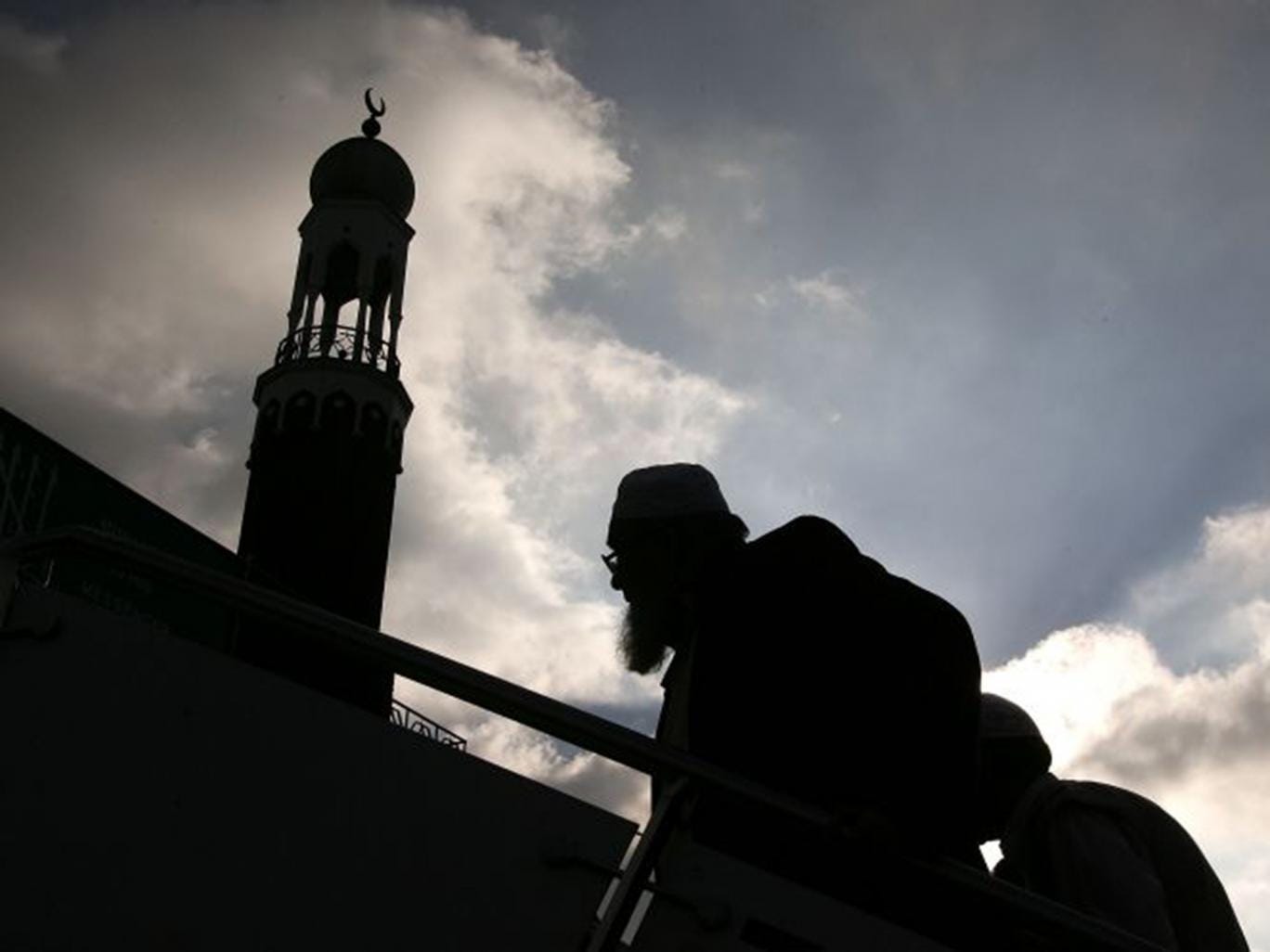 Muslims arrive for Friday prayers at Birmingham Central Mosque, where one of BritainвҖҷs sharia courts is located GettySharia courts in Britain are locking women into вҖңmarital captivityвҖқ and doing nothing to officially report domestic violence, according to an academic who gained unprecedented access to Islamic divorce hearings.Judges at the courts вҖңuphold the theory and practice of the strong hold men have over womenвҖқ, and set out to frustrate women whose husbands do not want them to leave, according to the study seen by The Independent.The findings, which are to be unveiled in the Houses of Parliament next month, are based on the most detailed and informed analysis of the workings of British sharia courts ever undertaken by an independent researcher.Machteld Zee, a legal scholar at Leiden University in the Netherlands, secured extraordinary access to the secretive courts, attending 15 hours of hearings at the Islamic Sharia Council in Leyton, east London, and the Birmingham Central Mosque Sharia. She was able to scrutinise more than a dozen cases, and interview an array of sharia experts including nine qadis вҖ“ Islamic judges.вҖңThere are, in fact, two separate legal orders functioning [in the UK], of which one currently operates in the вҖҳshadow of the lawвҖҷ,вҖқ she concludes. Muslims arrive for Friday prayers at Birmingham Central Mosque, where one of BritainвҖҷs sharia courts is located GettySharia courts in Britain are locking women into вҖңmarital captivityвҖқ and doing nothing to officially report domestic violence, according to an academic who gained unprecedented access to Islamic divorce hearings.Judges at the courts вҖңuphold the theory and practice of the strong hold men have over womenвҖқ, and set out to frustrate women whose husbands do not want them to leave, according to the study seen by The Independent.The findings, which are to be unveiled in the Houses of Parliament next month, are based on the most detailed and informed analysis of the workings of British sharia courts ever undertaken by an independent researcher.Machteld Zee, a legal scholar at Leiden University in the Netherlands, secured extraordinary access to the secretive courts, attending 15 hours of hearings at the Islamic Sharia Council in Leyton, east London, and the Birmingham Central Mosque Sharia. She was able to scrutinise more than a dozen cases, and interview an array of sharia experts including nine qadis вҖ“ Islamic judges.вҖңThere are, in fact, two separate legal orders functioning [in the UK], of which one currently operates in the вҖҳshadow of the lawвҖҷ,вҖқ she concludes.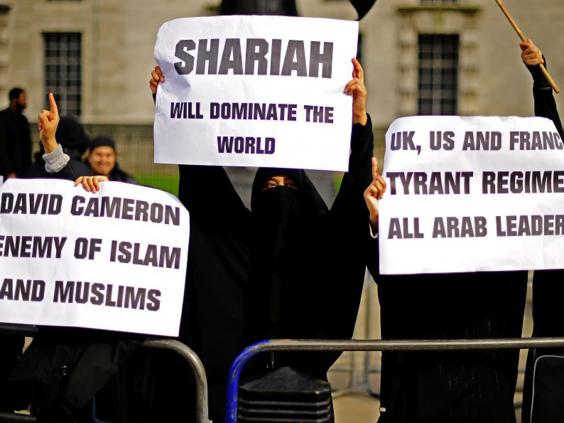 Muslim women demonstrate in favour of Sharia law during a protest outside 10 Downing Street in 2011During research for her book Choosing ShariaШҹ Multiculturalism, Islamic Fundamentalism and British Sharia Councils, she reportedly saw:A case where a woman who claimed to be married to a physically and verbally abusive man is told by a вҖңlaughingвҖқ judge: вҖңWhy did you marry such a personШҹвҖқA woman вҖңready to burst into tearsвҖқ is sent away without an answer after saying that her husband took out a loan in her name on the day they married and is denying her a divorce until she gives him ВЈ10,000.A married couple asking for advice on whether the woman had been religiously divorced from her former husband were told вҖңthe secular divorce counts as nothingвҖқ.The Islamic Sharia Council in London strongly disputes the findings in the book.But the findings will reignite the debate about the rise of sharia in the UK. Sharia courts вҖ“ or councils as they are known вҖ“ cannot overrule regular courts, but are responsible for issuing Islamic divorce certificates and giving advice on other aspects of religious law. Research has suggested there are around 30 such councils active in the UK. Muslim women demonstrate in favour of Sharia law during a protest outside 10 Downing Street in 2011During research for her book Choosing ShariaШҹ Multiculturalism, Islamic Fundamentalism and British Sharia Councils, she reportedly saw:A case where a woman who claimed to be married to a physically and verbally abusive man is told by a вҖңlaughingвҖқ judge: вҖңWhy did you marry such a personШҹвҖқA woman вҖңready to burst into tearsвҖқ is sent away without an answer after saying that her husband took out a loan in her name on the day they married and is denying her a divorce until she gives him ВЈ10,000.A married couple asking for advice on whether the woman had been religiously divorced from her former husband were told вҖңthe secular divorce counts as nothingвҖқ.The Islamic Sharia Council in London strongly disputes the findings in the book.But the findings will reignite the debate about the rise of sharia in the UK. Sharia courts вҖ“ or councils as they are known вҖ“ cannot overrule regular courts, but are responsible for issuing Islamic divorce certificates and giving advice on other aspects of religious law. Research has suggested there are around 30 such councils active in the UK.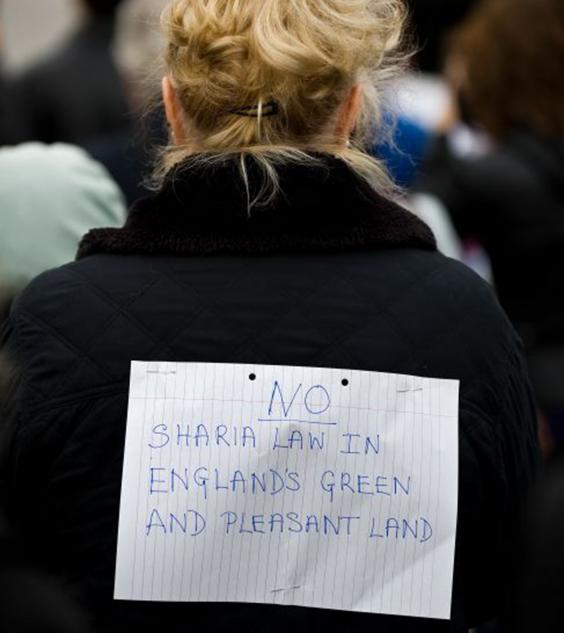 A woman at an anti-Sharia law demonstration in Hyde ParkIn 2008, the then Archbishop of Canterbury Rowan Williams sparked an outcry by arguing that the introduction of вҖңsome aspectsвҖқ of sharia in Britain could help social cohesion. Ministers abandoned an inquiry into the rise of sharia councils in 2011 вҖ“ because the courts refused to co-operate.Most of the вҖңinformal tribunalsвҖқ at sharia councils deal with Muslim women asking for a religious divorce. (Men do not need to initiate divorce hearings, because under sharia they can assert a divorce verbally, without outside affirmation.)But although sharia divorce courts are acknowledged as mediation and arbitration bodies under the 1996 Arbitration Act, Ms Zee claims they generally act for one party rather than solving disputes. The judges are вҖңnot a neutral third partyвҖқ but are вҖңalways in favour of the man,вҖқ she writes. She says she saw instances of children being awarded to the father, contrary to rules against custody judgments. A woman at an anti-Sharia law demonstration in Hyde ParkIn 2008, the then Archbishop of Canterbury Rowan Williams sparked an outcry by arguing that the introduction of вҖңsome aspectsвҖқ of sharia in Britain could help social cohesion. Ministers abandoned an inquiry into the rise of sharia councils in 2011 вҖ“ because the courts refused to co-operate.Most of the вҖңinformal tribunalsвҖқ at sharia councils deal with Muslim women asking for a religious divorce. (Men do not need to initiate divorce hearings, because under sharia they can assert a divorce verbally, without outside affirmation.)But although sharia divorce courts are acknowledged as mediation and arbitration bodies under the 1996 Arbitration Act, Ms Zee claims they generally act for one party rather than solving disputes. The judges are вҖңnot a neutral third partyвҖқ but are вҖңalways in favour of the man,вҖқ she writes. She says she saw instances of children being awarded to the father, contrary to rules against custody judgments.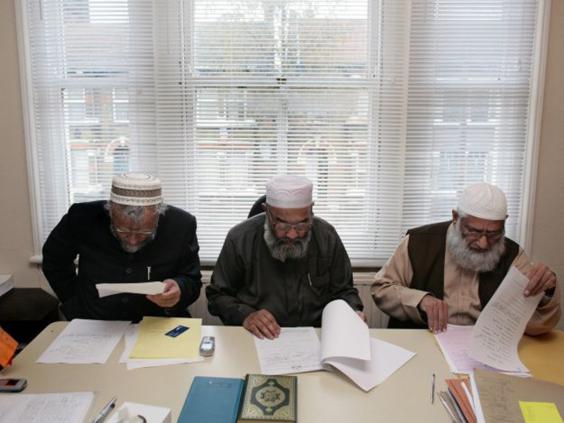 A Sharia courts offers mediation in a marital casesвҖңIn a toxic mix of religious fundamentalism, culture and tight-knit communities, sharia councils uphold the theory and practice of the strong hold men have over women,вҖқ writes Ms Zee in her book.вҖңSharia councils may вҖҳhelpвҖҷ women who want a divorce, but it is a solution to a problem that they fuel and one that they seek to preserve. Moreover, that religious divorces are sharia councilsвҖҷ вҖҳcore businessвҖҷ does not in the least bit mean that they are actually willing to help women obtain one. In fact, they are known to frustrate women in their requests, especially if the husband is unwilling to co-operate.вҖқThis echoes the views of the crossbench peer Baroness Cox, who this summer proposed a Bill in the Lords that would make it illegal for such tribunals to treat вҖңthe evidence of a man as worth more than the evidence of a womanвҖқ. The Bill passed its Second Reading in the House of Lords in October.Through academic contacts, Ms Zee spent two afternoons at the Leyton sharia council and half a day at the Birmingham council in July 2013. Her book presents the latter in a more favourable light, reporting that she did witness women being given divorces, and the judges explicitly asserting that they вҖңlive as British citizens and accept the laws of the landвҖқ.But she was shocked by some of the cases she witnessed in London, where she claims women faced discriminatory treatment. She says she saw women who were shackled by their husbandsвҖҷ debts being asked for вҖңlarge sums of moneyвҖқ for their divorce requests, and heard tales of husbands who had disappeared, stalling proceedings.Muslim women wishing to divorce often feel the need to get a religious divorce for cultural reasons and also because if a civil divorce is not accepted by a country that follows sharia and they have remarried, they risk the death penalty for adultery. A Sharia courts offers mediation in a marital casesвҖңIn a toxic mix of religious fundamentalism, culture and tight-knit communities, sharia councils uphold the theory and practice of the strong hold men have over women,вҖқ writes Ms Zee in her book.вҖңSharia councils may вҖҳhelpвҖҷ women who want a divorce, but it is a solution to a problem that they fuel and one that they seek to preserve. Moreover, that religious divorces are sharia councilsвҖҷ вҖҳcore businessвҖҷ does not in the least bit mean that they are actually willing to help women obtain one. In fact, they are known to frustrate women in their requests, especially if the husband is unwilling to co-operate.вҖқThis echoes the views of the crossbench peer Baroness Cox, who this summer proposed a Bill in the Lords that would make it illegal for such tribunals to treat вҖңthe evidence of a man as worth more than the evidence of a womanвҖқ. The Bill passed its Second Reading in the House of Lords in October.Through academic contacts, Ms Zee spent two afternoons at the Leyton sharia council and half a day at the Birmingham council in July 2013. Her book presents the latter in a more favourable light, reporting that she did witness women being given divorces, and the judges explicitly asserting that they вҖңlive as British citizens and accept the laws of the landвҖқ.But she was shocked by some of the cases she witnessed in London, where she claims women faced discriminatory treatment. She says she saw women who were shackled by their husbandsвҖҷ debts being asked for вҖңlarge sums of moneyвҖқ for their divorce requests, and heard tales of husbands who had disappeared, stalling proceedings.Muslim women wishing to divorce often feel the need to get a religious divorce for cultural reasons and also because if a civil divorce is not accepted by a country that follows sharia and they have remarried, they risk the death penalty for adultery. 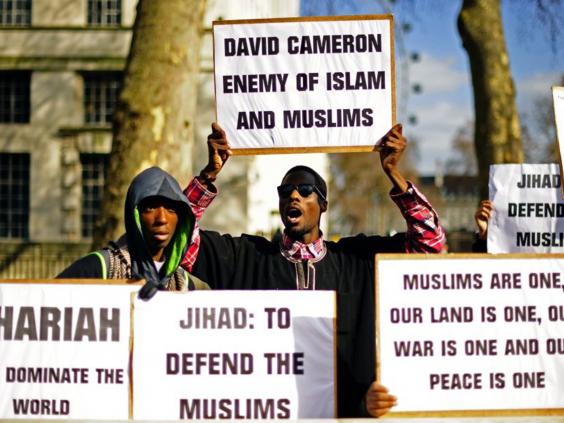 Protesters demonstrate in favour of Sharia law for Libya outside 10 Downing Street in 2011Ms Zee criticises Dr Williams and Lord Phillips of Worth Matravers, the former Lord Chief Justice, for calling for sharia councils to be recognised. She says their views of multiculturalism are вҖңbased on a romanticised view of communal valuesвҖқ, and factual ignorance. She proposes that the UK Government should consider Dutch laws that allow women whose husbands will not grant a religious divorce to pursue civil or criminal proceedings. Her book is being launched on 12 January. Khola Hasan, a scholar at the Islamic Sharia Council in London, has strongly rejected Ms ZeeвҖҷs allegations: вҖңWe certainly donвҖҷt condone domestic violence or force women to go back: we are there to get women out of religious marriages.вҖқ She described the allegations of bias towards men as вҖңabsolute rubbishвҖқ.She added: вҖңCustody is not in our remit. We are not allowed to deal with custody and we make clear on our website and with everyone coming to us [that they need] to go to English court.вҖқBirmingham City Mosque Sharia Council had failed to respond to a request for a comment as we went to press.ЩҖЩҖЩҖЩҖЩҖЩҖЩҖЩҖЩҖЩҖЩҖЩҖЩҖSharia courts: Legal status in the UKThere are believed to be dozens of Sharia вҖңcourtsвҖқ operating in the UK. However, although they adjudicate on religious matters, they do not have the legal status of courts, acting more as councils or tribunals.Weddings and divorces overseen by Sharia councils are religious matters and are not necessarily recognised by the state. Likewise, a civil divorce or wedding isnвҖҷt necessarily recognised by the Sharia council.Sharia councils can have legal status as mediation and arbitration bodies under the Arbitration Act 1996. Any divorce agreements made in this capacity, however, have to be approved by a law court if they are to be recognised under civil law, and can be overturned. Sharia councils can also provide advice on the religious law on matters such as wills, law contracts and fatwas. Lewis Smith Protesters demonstrate in favour of Sharia law for Libya outside 10 Downing Street in 2011Ms Zee criticises Dr Williams and Lord Phillips of Worth Matravers, the former Lord Chief Justice, for calling for sharia councils to be recognised. She says their views of multiculturalism are вҖңbased on a romanticised view of communal valuesвҖқ, and factual ignorance. She proposes that the UK Government should consider Dutch laws that allow women whose husbands will not grant a religious divorce to pursue civil or criminal proceedings. Her book is being launched on 12 January. Khola Hasan, a scholar at the Islamic Sharia Council in London, has strongly rejected Ms ZeeвҖҷs allegations: вҖңWe certainly donвҖҷt condone domestic violence or force women to go back: we are there to get women out of religious marriages.вҖқ She described the allegations of bias towards men as вҖңabsolute rubbishвҖқ.She added: вҖңCustody is not in our remit. We are not allowed to deal with custody and we make clear on our website and with everyone coming to us [that they need] to go to English court.вҖқBirmingham City Mosque Sharia Council had failed to respond to a request for a comment as we went to press.ЩҖЩҖЩҖЩҖЩҖЩҖЩҖЩҖЩҖЩҖЩҖЩҖЩҖSharia courts: Legal status in the UKThere are believed to be dozens of Sharia вҖңcourtsвҖқ operating in the UK. However, although they adjudicate on religious matters, they do not have the legal status of courts, acting more as councils or tribunals.Weddings and divorces overseen by Sharia councils are religious matters and are not necessarily recognised by the state. Likewise, a civil divorce or wedding isnвҖҷt necessarily recognised by the Sharia council.Sharia councils can have legal status as mediation and arbitration bodies under the Arbitration Act 1996. Any divorce agreements made in this capacity, however, have to be approved by a law court if they are to be recognised under civil law, and can be overturned. Sharia councils can also provide advice on the religious law on matters such as wills, law contracts and fatwas. Lewis Smith
| |
  
|
|
|
|